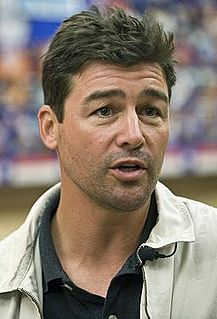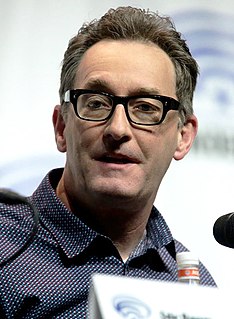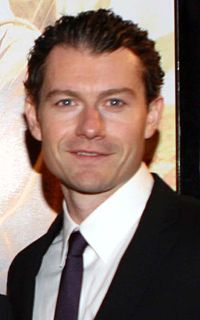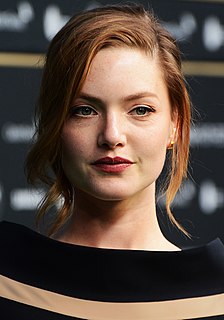A Quote by Gus Van Sant
There's a lot of films that have relatively rigid road maps because they have a script and others that are less rigid because they have less of a script, like 'Elephant.' The road map becomes more interpretive, maybe, than one with a detailed script. Editing-wise, they all have their problems.
Related Quotes
Improv is not something I had a lot of experience with, because for a long time, my only experience in front of a camera was all television, which is pretty rigid script-wise, except for the occasional scene where you toss in an ad-lib just to elongate something. Like, say, you're walking down a hall and you just don't have enough dialogue, and you throw in something. But you don't really have time to do other than what's written. It's very rigid. Shows have a certain rhythm that nobody wants disturbed.
We see only the script and not the paper on which the script is written. The paper is there, whether the script is on it or not. To those who look upon the script as real, you have to say that it is unreal - an illusion - since it rests upon the paper. The wise person looks upon both paper and script as one.
'Quantum of Solace' was a bit of a different circumstance than a lot of my other films because you're stepping into a franchise, and also in that particular film, we're dealing with a script from the writer's strike, which was difficult to handle because there was never time to really develop a finished script.
When I did The X-Files, there was certainly less of that because the script was as it was and it was such a wonderful script and it was quite complex and there wasn't a hell of a lot of improvising I could do to bring to the table, but I guess what I did bring was a sense of self and that the reason I was cast was because I did come across as someone who possibly was only human for a short time.
Any good movie or script usually, if they're doing their job, gives the highest platform possible for an actor to leap off of, and that script was very high up there. It was a very smart, tight script. There was a lot of improv, as well, once we got to the set, but a lot of the original script was also in there.
As a young filmmaker, I shot a lot of stuff because I wanted to make sure that I got everything, but now I've gotten much more precise with my shooting. Editing is a whole other layer because then, sometimes you realize characters don't even need to say this or that. It becomes an issue of exposition, and over-explaining something. In the script, I'd reinforce certain things about what I wanted people to know two or three times, but in the editing room, I'd be like, "I only need to say this once, maybe twice."
As we were negotiating, I didn't have a script. Once the deal is closed, they let you read the script. So, I got the script and was reading it like, "Oh, please be good!," because I'd already signed on the dotted line. And I read it and just went, "Okay, I'm going to be okay. Thank god!" It was a really funny, moving story.





































